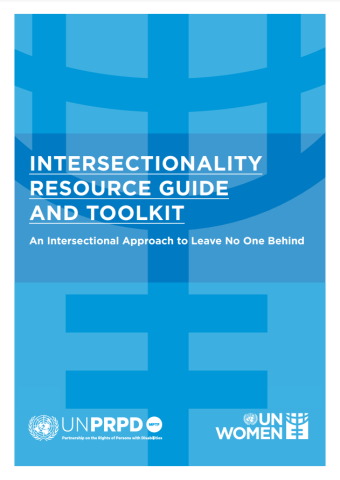Library
Intersectionality resource guide and toolkit
There is growing recognition that structural barriers and rising inequalities must be addressed in order to achieve the international agreed development goals, the Sustainable Development Goals (SDGs) pledge to leave no one behind, and nationally agreed targets. The COVID-19 crisis has amplified this need as those experiencing intersectional discrimination face disproportionate impacts in terms of access to health care, risk of violence, unemployment, and wellbeing.
Intersectionality can go a long way towards addressing these inequalities. With growing recognition that failure to address complex social systems and identities can obscure or deny the human rights protections due to all, it is crucial to design programmes and policies that effectively address not only discrimination based on disability but the situation of those affected by all forms of compounded and intersecting forms of discrimination.
This does not require an “add and stir” approach, but rather a full shift in mindset—one that is willing to sit with the discomfort that comes with exploring the relational nature of power and discrimination both within and beyond UN systems. The “Intersectionality resource guide and toolkit”, a UN Women and United Nations Partnership on the Rights of Persons with Disabilities led collaborative initiative with support from United Nations and non-United Nations entities, aims to help both organizations and individual practitioners and experts to address intersectionality in policies and programmes.
This publication is part of the “Briefs on women and girls with disabilities series”.
